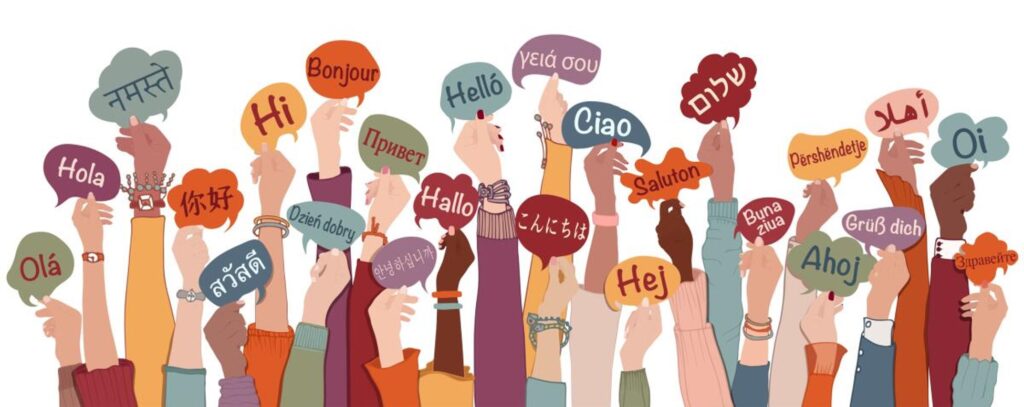In the current fast-changing world, the ability to speak multiple languages is becoming more than just a valuable skill; it’s increasingly seen as a necessity. As globalization connects us more than ever before, multilingualism is shaping how we communicate, learn, and engage with different cultures. Let’s explore what’s driving this trend, the benefits it brings, and the challenges we face along the way.

Multilingualism isn’t new; for centuries, people in various regions have spoken multiple languages, especially in places where cultures intersect. However, globalization has intensified this phenomenon. According to the UN’s International migration reports, by 2020 over 281 million people were living outside their birthplace, each bringing their unique languages and cultures to new communities. This migration creates vibrant, multilingual environments where people are eager to learn new languages to connect with others.
Technology plays a significant role here as well. Social media, online forums, and global business networks are bustling with conversations in various languages. There have emerged language training applications including the renowned Duolingo. Whether it’s through music, films, or online content, exposure to different languages has become commonplace. As a result, learning a new language is more accessible and appealing than ever, nurturing a culture that celebrates linguistic diversity.
In response to our increasingly interconnected world, schools around the globe are putting a stronger emphasis on language education. Many countries have rolled out bilingual or multilingual programs, recognizing the cognitive and social benefits that come with knowing multiple languages. Cultural events to celebrate this achievement have been set and more people are adopting the initiative.
Research shows that multilingual individuals often excel in problem-solving and creativity, making them valuable assets in today’s job market. International organizations, like the European Union, are also promoting multilingualism through various initiatives. They encourage citizens to learn at least two foreign languages alongside their native tongue, fostering a sense of shared identity and preparing individuals for global careers. As a result, language learning has become a vital part of curricula worldwide, equipping students with skills they’ll need in the future. Countries like Germany, Japan, Spain, Brazil, Italy, and France among others are known to offer job opportunities for those who are proficient in the country’s native language.
Beyond economic and educational aspects, multilingualism enriches our cultural experiences. Language is a key part of who we are; it’s tied to our identities and heritage. When we learn new languages, we open doors to different perspectives and stories, fostering empathy and appreciation for diversity. Multilingualism helps us connect with others on a deeper level, breaking down cultural barriers and creating meaningful interactions.
In multicultural societies, speaking multiple languages can significantly enhance community cohesion. It allows individuals from various backgrounds to communicate and collaborate, promoting inclusivity and a sense of belonging. Cities known for their multilingual populations often report lower rates of social conflict and a stronger sense of community.
Despite its many advantages, multilingualism does come with challenges that need to be addressed. One major concern is the risk of language loss, especially among minority languages. As dominant languages like English and Mandarin gain traction, less widely spoken languages can fade into obscurity. This loss threatens not only linguistic diversity but also the rich cultural heritage tied to those languages. Examples include Latin which was nearly forgotten but was adapted in scientific naming in biology and currently is getting more attention.
Additionally, individuals navigating multiple languages may face linguistic insecurity or even discrimination. In some environments, being multilingual can lead to negative stereotypes or biases, especially if someone’s language proficiency or accent is a bit off. This can diminish their confidence and discourage them from participating in multilingual spaces.
As we embrace multilingualism, it’s crucial to foster an environment that values all languages and encourages individuals to explore the richness of human communication. By doing so, we can create a more inclusive and interconnected world where speaking multiple languages serves as a bridge rather than a barrier. Ultimately, the rise of multilingualism reflects the evolving nature of human interaction. As we navigate this complex landscape, the importance of multilingualism will only grow, shaping our identities, our societies, and our shared future.

